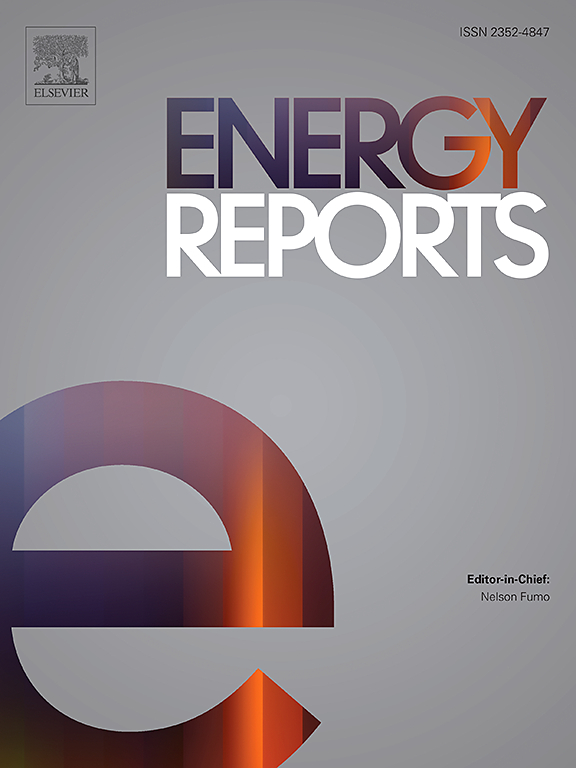Numerical analysis of the effect of inner pipe thermal conductivity on heat transfer in deep borehole heat exchangers
IF 5.1
3区 工程技术
Q2 ENERGY & FUELS
引用次数: 0
Abstract
Geothermal energy, recognized as a clean and sustainable solution, has become crucial to global energy transformation. This study focuses on a coaxial-type deep borehole heat exchanger geothermal utilization system in Xi’an to establish a comprehensive numerical model to investigate the effects of varying thermal conductivity and insulation depths of the inner pipe on the heat transfer performance of a deep-buried pipe. The results showed that the heat transfer rate of the buried pipe under different water temperature conditions is approximately 16 % higher with an insulated steel inner pipe than with a PE pipe. When the depth of the insulated steel pipe reaches 600 m, despite the insulation depth increasing by only 24.00 %, the heat loss rate of the buried pipe is significantly reduced to 43.07 %, which shows that an insulated inner pipe to a specific depth can effectively enhance the heat transfer of the buried pipe. This study presents a novel approach to enhance heat transfer in coaxial-type deep-buried pipes by focusing on inner pipe material selection and segmented thermal insulation. The findings offer valuable guidance on the design of deep-buried pipe heat transfer systems.
深孔换热器内管导热系数对传热影响的数值分析
地热能作为一种公认的清洁和可持续的解决方案,已成为全球能源转型的关键。本文以西安某同轴式深孔换热器地热利用系统为研究对象,建立综合数值模型,研究不同导热系数和内管保温深度对深埋管传热性能的影响。结果表明,在不同水温条件下,采用保温钢板内管的地埋管换热率比采用PE内管的地埋管换热率高约16 %。当保温钢管深度达到600 m时,尽管保温深度仅增加24.00 %,但地埋管的热损失率却显著降低至43.07 %,说明保温内管达到一定深度可以有效增强地埋管的传热。本文从管材选择和分段保温两方面提出了一种增强同轴型深埋管传热的新方法。研究结果对深埋管传热系统的设计具有重要的指导意义。
本文章由计算机程序翻译,如有差异,请以英文原文为准。
求助全文
约1分钟内获得全文
求助全文
来源期刊

Energy Reports
Energy-General Energy
CiteScore
8.20
自引率
13.50%
发文量
2608
审稿时长
38 days
期刊介绍:
Energy Reports is a new online multidisciplinary open access journal which focuses on publishing new research in the area of Energy with a rapid review and publication time. Energy Reports will be open to direct submissions and also to submissions from other Elsevier Energy journals, whose Editors have determined that Energy Reports would be a better fit.
 求助内容:
求助内容: 应助结果提醒方式:
应助结果提醒方式:


